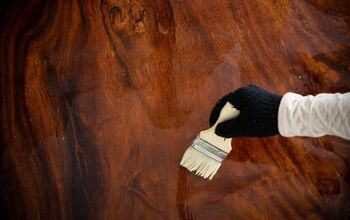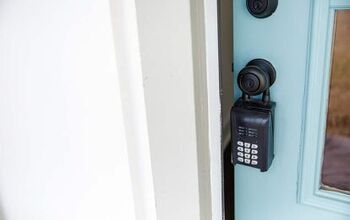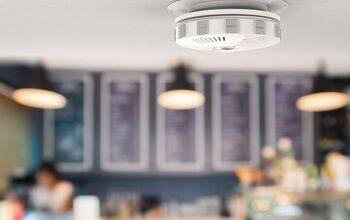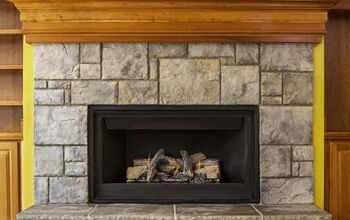Is Dawn Detergent A Nonionic Surfactant? (Find Out Now!)

When you reach for your Dawn dish detergent, all you’re probably thinking about is how fast you can wash the dishes. You like how Dawn does a great job cutting through grease and oil, getting your dishes spotless. But, the odds are good that beyond that, you don’t give your dish soap much more thought.
The fact that Dawn detergent is a nonionic surfactant probably doesn’t cross your mind too much. However, you can find surfactants of varying types in many different cleaning products, from toilet bowl cleaners to laundry detergent. Nonionic surfactants are especially good at breaking up oils and grease, making them an excellent match for dish soap.
Dawn dish soap has both ionic and nonionic surfactants, allowing it to tackle grease and remain gentle on the skin. The nonionic surfactants dissolve in water, have no electric charge, and resist hard water problems.
Do You Need a Maid Service?
Get free, zero-commitment quotes from pro contractors near you.

What Do Surfactants Do?
A surfactant is any substance that reduces a liquid’s surface tension, making contact between the liquid and another substance easier. To better picture how surfactants work in a cleaning product, here’s a quick science lesson.
Imagine surfactant molecules having a head and a tail, and when they combine, they form something called a micelle. A micelle is essentially a circle of surfactants with their heads facing outward and their tails all pointing to the center.
Therefore, the heads pull soil and dirt from the dishes you’re washing, and the tails keep the soil trapped. This way, the dirt doesn’t just find its way back onto your plates, utensils, and glasses.
What Is A Nonionic Surfactant?
There are several types of surfactants, including both ionic and nonionic. Nonionic surfactants possess no electrical charge and are the second-most common surfactant following anionic surfactants.
Nonionic surfactants are especially good at breaking down oil, grease, and fats. Dawn detergent is widely known for its ability to break through tough grease and grime on dishes.
This is thanks to the nonionic surfactants in its composition. The surfactants trap oil and dirt, removing it from the surface you’re cleaning.
Additionally, nonionic surfactants won’t deactivate in hard water. So if you live in an area with hard water, your dishes can still sparkle with no soap scum residue.
Using Dawn Detergent As A Surfactant In Herbicides
Are you one of the many people that prefer to mix up their own herbicides? If so, Dawn detergent can make a decent addition to your DIY recipe.
Herbicides typically use a nonionic surfactant that allows you to cover plants more effectively. The nonionic surfactant works as a spreading agent, loosening up the liquid’s surface tension and scattering the droplets.
If you plan to add Dawn detergent to your herbicide, the general rule of thumb is one tablespoon per gallon. Dawn detergent alone won’t kill weeds; it simply helps with the dispersal.
If you want to make your own herbicide, you can do so with Dawn, vinegar, and Epsom salts. You’ll need 2 cups of Epsom salts, 1 gallon of white vinegar (diluted), and ¼ cup Dawn detergent. Mix them all up and use a sprayer to disperse the mixture over your weeds.
In this concoction, vinegar is the weed killer. So the more concentrated the vinegar, the more successful your weed killer will be. Make sure to wear gloves when spraying this or any type of weed killer, even if it’s homemade.
Do You Need a Maid Service?
Get free, zero-commitment quotes from pro contractors near you.

Related Questions
What other household products contain nonionic surfactants?
In addition to dish soap and dishwasher detergent, you’ll find nonionic surfactants in laundry detergent, toilet bowl cleaner, and carpet cleaner. You can also find some of these ingredients in your bath and body products. Typically, you won’t see them often in certain bath products since they are non-foaming. People tend to equate a lot of suds with clean, but nonionic surfactants still offer excellent cleaning power. Many products will contain a mix of both ionic and nonionic surfactants.
Can I put Dawn dish soap in a dishwasher?
You might think since dishwasher detergent and Dawn dish soap both have nonionic surfactants, you can use them interchangeably. But this is not the case. Dishwasher detergents have a specific blend of nonionic surfactants and other ingredients that keep it low-foaming.It also tends to be harsher on the skin, so handwashing with dishwasher detergent isn’t ideal. You might get your dishes clean, but you would likely use too much of it due to the lack of suds. You’d ultimately waste water, end up with a residue on your dishes, and irritating your skin.On the other hand, dish soap features both nonionic and anionic surfactants. The anionic surfactants are high-sudsing, giving your dish soap that nice lather. But use dish soap in your dishwasher, and you can expect a mess. The friction and movement from the water and sprayers will create an ocean of foam coming out of your appliance. Therefore, stick to dishwasher detergents for your dishwasher and dish soap for your handwashing.

Stacy Randall is a wife, mother, and freelance writer from NOLA that has always had a love for DIY projects, home organization, and making spaces beautiful. Together with her husband, she has been spending the last several years lovingly renovating her grandparent's former home, making it their own and learning a lot about life along the way.
More by Stacy Randall










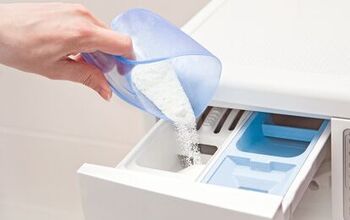
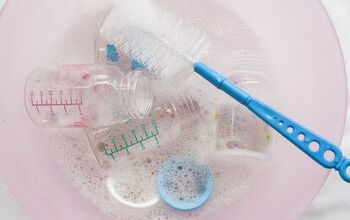
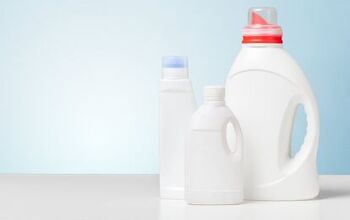
![10 Best Electric Lawn Mowers - [2022 Reviews & Top Rated Models]](https://cdn-fastly.upgradedhome.com/media/2023/07/31/9070486/10-best-electric-lawn-mowers-2022-reviews-top-rated-models.jpg?size=350x220)
